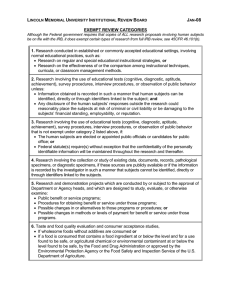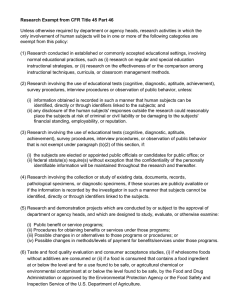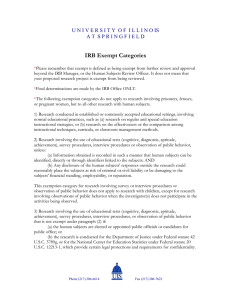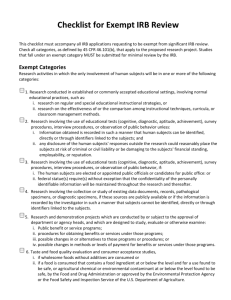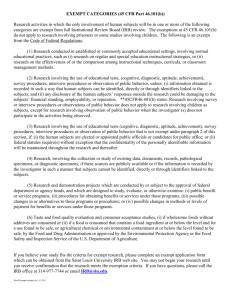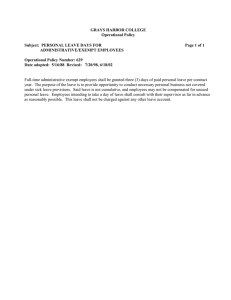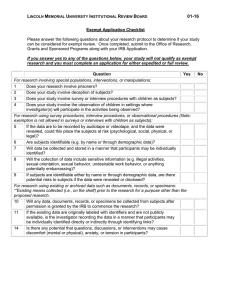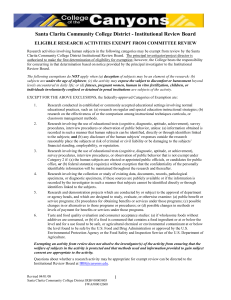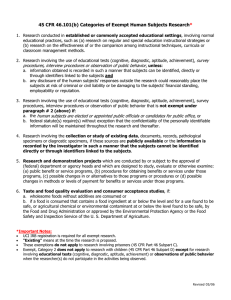exempt category of research
advertisement
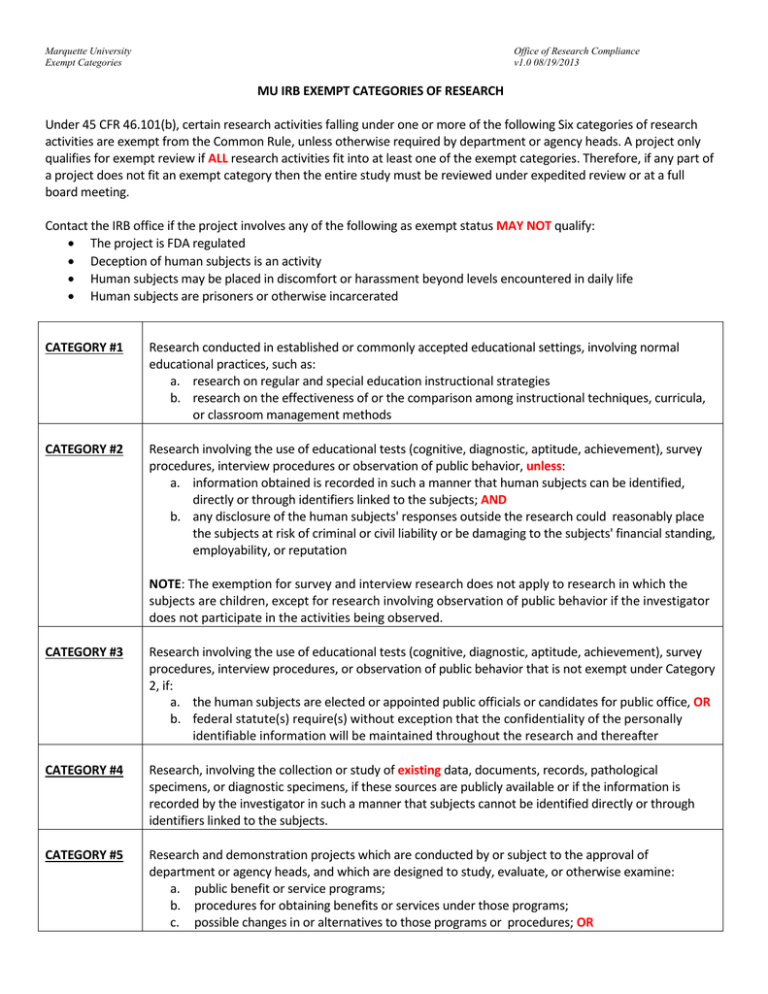
Marquette University Exempt Categories Office of Research Compliance v1.0 08/19/2013 MU IRB EXEMPT CATEGORIES OF RESEARCH Under 45 CFR 46.101(b), certain research activities falling under one or more of the following Six categories of research activities are exempt from the Common Rule, unless otherwise required by department or agency heads. A project only qualifies for exempt review if ALL research activities fit into at least one of the exempt categories. Therefore, if any part of a project does not fit an exempt category then the entire study must be reviewed under expedited review or at a full board meeting. Contact the IRB office if the project involves any of the following as exempt status MAY NOT qualify: The project is FDA regulated Deception of human subjects is an activity Human subjects may be placed in discomfort or harassment beyond levels encountered in daily life Human subjects are prisoners or otherwise incarcerated CATEGORY #1 Research conducted in established or commonly accepted educational settings, involving normal educational practices, such as: a. research on regular and special education instructional strategies b. research on the effectiveness of or the comparison among instructional techniques, curricula, or classroom management methods CATEGORY #2 Research involving the use of educational tests (cognitive, diagnostic, aptitude, achievement), survey procedures, interview procedures or observation of public behavior, unless: a. information obtained is recorded in such a manner that human subjects can be identified, directly or through identifiers linked to the subjects; AND b. any disclosure of the human subjects' responses outside the research could reasonably place the subjects at risk of criminal or civil liability or be damaging to the subjects' financial standing, employability, or reputation NOTE: The exemption for survey and interview research does not apply to research in which the subjects are children, except for research involving observation of public behavior if the investigator does not participate in the activities being observed. CATEGORY #3 Research involving the use of educational tests (cognitive, diagnostic, aptitude, achievement), survey procedures, interview procedures, or observation of public behavior that is not exempt under Category 2, if: a. the human subjects are elected or appointed public officials or candidates for public office, OR b. federal statute(s) require(s) without exception that the confidentiality of the personally identifiable information will be maintained throughout the research and thereafter CATEGORY #4 Research, involving the collection or study of existing data, documents, records, pathological specimens, or diagnostic specimens, if these sources are publicly available or if the information is recorded by the investigator in such a manner that subjects cannot be identified directly or through identifiers linked to the subjects. CATEGORY #5 Research and demonstration projects which are conducted by or subject to the approval of department or agency heads, and which are designed to study, evaluate, or otherwise examine: a. public benefit or service programs; b. procedures for obtaining benefits or services under those programs; c. possible changes in or alternatives to those programs or procedures; OR Marquette University Exempt Categories Office of Research Compliance v1.0 08/19/2013 d. possible changes in methods or levels of payment for benefits or services under those programs CATEGORY #6 Taste and food quality evaluation and consumer acceptance studies, a. if wholesome foods without additives are consumed; OR b. if a food is consumed that contains a food ingredient at or below the level and for a use found to be safe, or agricultural chemical or environmental contaminant at or below the level found to be safe, by the Food and Drug Administration or approved by the Environmental Protection Agency or the Food Safety and Inspection Service of the U.S. Department of Agriculture.
